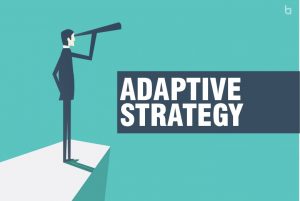As we traverse the ever-evolving landscape of learning and development, one thing remains abundantly clear: adaptability is paramount. In an era characterized by rapid technological advancements, shifting demographics, and changing workplace dynamics, the ability to pivot and innovate has become a cornerstone of success for both individuals and organizations alike.
The traditional approach to learning, with its emphasis on static content delivery and one-size-fits-all solutions, is rapidly becoming obsolete. In its place, a new paradigm is emerging—one that prioritizes flexibility, personalization, and continuous improvement.
At the heart of this paradigm shift lies the concept of adaptive learning. Unlike traditional methods that follow a linear progression, adaptive learning leverages technology to dynamically tailor educational experiences to the unique needs and preferences of each learner. By harnessing data analytics, artificial intelligence, and machine learning algorithms, adaptive learning platforms can identify individual learning gaps, adjust content delivery in real-time, and provide targeted support to help learners achieve their goals more efficiently.
But adaptive learning is not just about technology; it’s about mindset. As learning professionals, we must embrace a culture of experimentation and iteration, recognizing that failure is not a setback but rather an opportunity for growth. By fostering a learning environment where curiosity is celebrated, mistakes are viewed as learning opportunities, and feedback is valued, we can empower individuals to take ownership of their learning journey and thrive in an ever-changing world.
Furthermore, as the boundaries between work and learning continue to blur, it’s essential to adopt a holistic approach to talent development. This means integrating learning initiatives seamlessly into the fabric of the organization, aligning them with business goals, and fostering a culture of continuous learning at all levels.
In this era of constant change, the role of the Chief Learning Officer (CLO) is more critical than ever. As stewards of organizational learning, CLOs have a unique opportunity to shape the future of work by championing adaptive strategies that empower individuals to learn, grow, and adapt in the face of uncertainty.
Conclusion
The future of learning is adaptive—a dynamic ecosystem where flexibility, personalization, and continuous improvement reign supreme. By embracing adaptive strategies and fostering a culture of lifelong learning, we can navigate the complexities of the modern world with confidence and resilience. Together, let’s embark on this journey of discovery and transformation, shaping a brighter future for generations to come.

